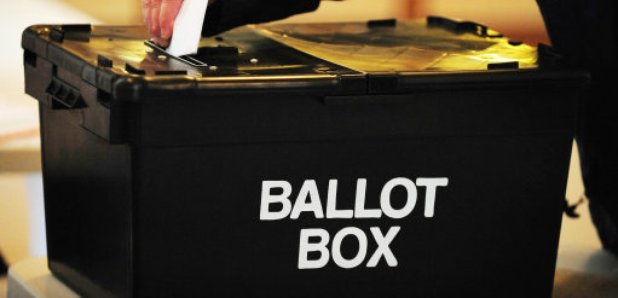Man from Witham challenges voter ID trials
7 March 2019, 08:05 | Updated: 7 March 2019, 08:12

A man from Witham is taking the Government to the High Court later - to challenge voter ID trials.
64 year old Neil Coughlan is bringing crowd-funded legal action against a pilot scheme which will require voters to produce ID before they can cast their ballot in local elections.
Braintree is one of nine local authorities taking part in it in May.
Mr Coughlan is arguing the pilots are "unlawful" and will prevent people from voting.
He also says the Government's claim that the scheme is being implemented to help tackle voter fraud "does not withstand scrutiny" as cases of voter fraud by impersonation are "exceedingly rare".
In a statement issued ahead of the two-day hearing in London, Mr Coughlan said: "Universal Suffrage - the right to vote for all adult citizens, regardless of property ownership, income, race or ethnicity - is a concept that lies at the very heart of our democracy.
"I have brought this legal case because I feel duty bound to challenge a Government scheme that would erode our hard-won fundamental rights, merely to combat a problem that barely exists.
"It is the poor and vulnerable who will be affected by this - people who already struggle to have their voices heard.
"I will be attending the High Court to defend our democracy against the Government's dangerous plans."
Mr Coughlan has raised more than £32,500 so far through the Crowdjustice website to fund his legal action.
Under the pilots, voters in the participating areas will have to meet ID requirements, as set out by each local authority, in order to be able to cast their ballot.
The Government is running the pilots with a view to rolling out voter ID nationwide in future elections.
An earlier set of trials were carried out in five English boroughs during the the 2018 local elections and research from the Electoral Commission found more than 1,000 people were turned away due to incorrect identification.
Mr Coughlan's solicitor Tom Short, of law firm Leigh Day, said: "Our client is deeply concerned that the requirement to produce ID in order to vote is likely to prevent or discourage prospective voters from exercising their right to take part in the democratic process and will only serve to further disenfranchise marginalised communities.
"We will argue that by imposing restrictions on who can vote, the Cabinet Office is acting outside the powers given to it by Parliament to approve pilot schemes aimed at increasing voter participation.
"We will argue that any attempts to introduce voter ID requirements in elections ought to be subject to the proper scrutiny of Parliament."
Announcing the pilots in November last year, the Cabinet Office said it was working with a "broad range" of organisations to ensure its policy would reflect the needs of all UK voters.
It also said local authorities will provide alternative methods of ID, free of charge, to anyone who does not have a specified form of ID, so that everyone who is registered to vote has the opportunity to do so.






















